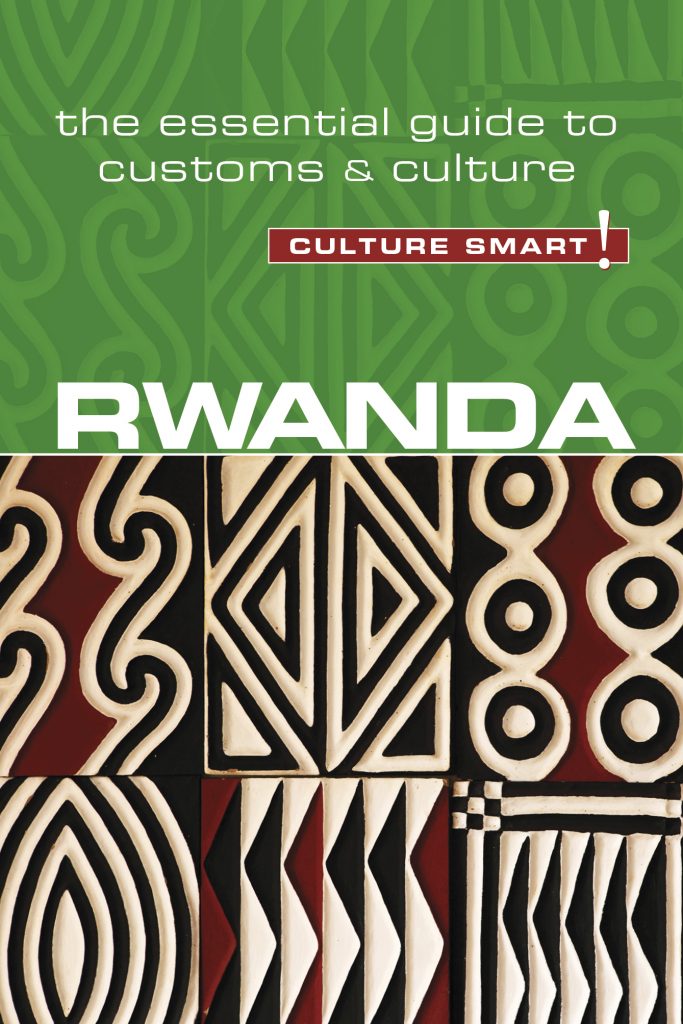
It is fair to say that Rwanda is not currently a top travel destination. The country’s tourism industry has had a fair bit of catching up to do, but with its history firmly behind it, Rwanda is quietly earning a name for itself — and for very good reason. The “Land of a Hundred Hills” offers an astonishing range of stunning landscapes and an abundance of natural beauty, making the country an exciting destination for those who like to explore off the beaten track.
Ahead of the publication of our new Culture Smart! Rwanda guide, here are 5 things you need to know about the customs and culture to ensure you have a fulfilling and meaningful experience:
The People
As the Rwandan saying goes “Ugiye iburyasazi, azirya mbisi” — if you go where there are flies, eat them raw. In other words, when in Rome, do as the Romans do, but even more so, be observant and take cues from the people you meet as for how to behave appropriately and respectfully.
Beliefs
Rwandan religious beliefs have deep, enduring roots, going back long before European interference. However, the most prominent religion is “Roman Catholicism”, with approximately 46% of the population belonging to the Church. Other main religions include Protestant Christianity and Islam, and only 0.1% of the population today observe traditional African folk beliefs as their main religion.
Holidays
There are two key public holidays you’ll need to know about!
Kwibuka à Kwibuka is the most significant Rwandan holiday aside from religious occasions, and is all about remembrance. Starting on the 7th of April each year, Kwibuka is a weeklong commemoration of the 1994 Genocide of the Tutsi. It goes without saying that this week tends to bring with it a quieter and more sombre atmosphere in Rwanda, as it is a time for introspection and remembrance.
Umuganda à although not technically a holiday, umuganda is still worth noting. Meaning, roughly, “coming together for a common purpose”, it refers to the last Saturday of each month that is set aside for mandatory community service. Beginning early in the morning and lasting until about 11.00 a.m., all Rwandan citizens participate in a nationwide clean-up. Other general activity tends to cease while Rwandans clean streets, build roads, clear verges, dig ditches, repair houses, and tend to vegetable gardens. Stores, restaurants and offices effectively shut down during these hours, and police patrol roads to ensure that every citizen contributes his or her share. In general, tourists and foreigners are excused from umuganda, but Rwandans need an official exemption note to get out of it, so it is not unlikely that you will be stopped and checked should you be out and about during these hours.
Physical Conduct
Rwandans are reserved and place huge value on privacy, and this comes across in their general physical demeanour, which tends to be restrained and quiet. Generally, the only acceptable emotion to express publicly is mirth, while displays of negative emotion are frowned upon. Rwandans are naturally obliging, but very indirect in their communication style — you will rarely hear the word “no”.
Greetings
To send you on your way, we’ll finish with a few useful greetings in Kinyarwanda to help you get by on your travels!
- Use muraho or bite to say hello
- Umunsi mwiza is how you say “have a nice day”
Simbyumva is a useful one. It means “I don’t understand”

Click here to find out more and pre-order your copy now.